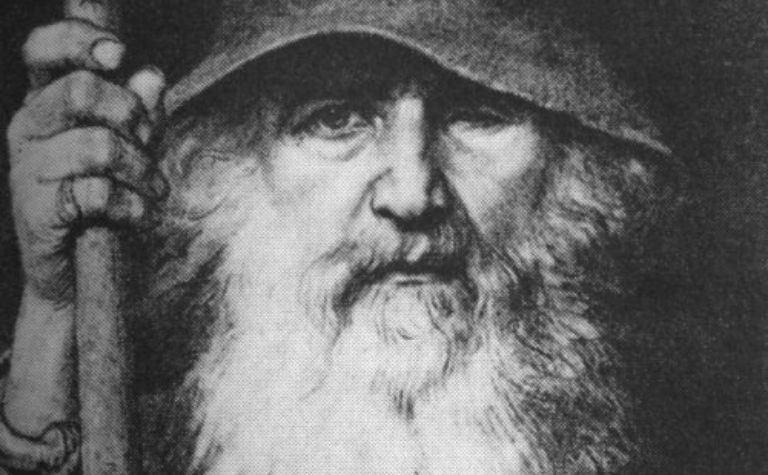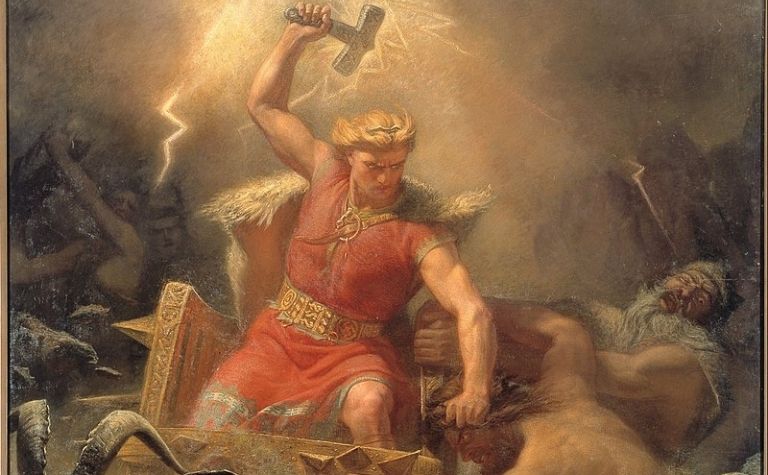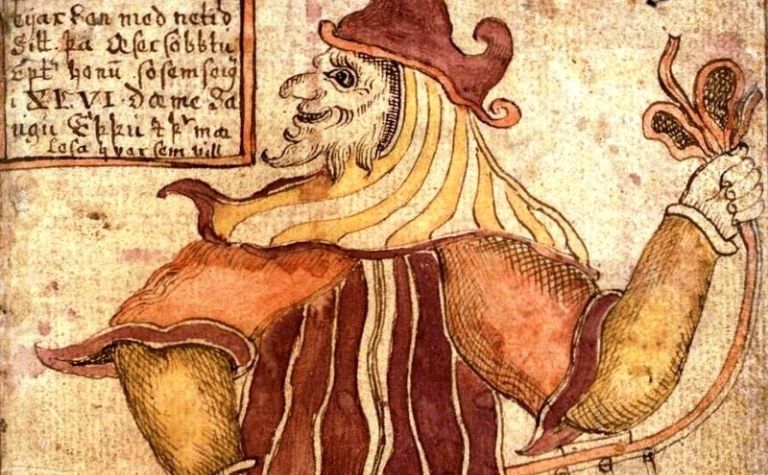From the Marvel Universe to American Gods, the Norse gods are just as prevalent in pop culture as the gods from Greek and Roman mythology.
When seen in modern novels or onscreen, Loki is often cast as the villain, Thor as the hero, and Odin as a mediator. But are the same gods good and evil in Norse mythology?
Norse gods are neither good nor evil in Norse mythology. Just like in Greek and Roman mythology, the Norse gods have similar feelings and motivations to human beings.
They are, however, much more powerful, and their actions have much greater consequences.
This article will explore the moral compasses of just a few of these famous Norse gods: Odin, Thor, and Loki.
Also, see Norse Gods vs. Greek Gods: Comparison to learn more.

Is Odin Good or Evil in Norse Mythology?
In ancient Norse myths, Odin rules the kingdom of Asgard, and just like any ruler, he’s quite complicated.
Odin holds the highest place in the Norse gods’ society, so he has many qualities that are associated with heroes and qualities that aren’t.
In most modern media, Odin has a firm and benevolent personality.
As portrayed in the Marvel movies and many other modernizations, Odin is fair and paternal and would be described as a “good” god by today’s standards.
Norse myths, however, describe Odin as being quite intense. He is one-eyed, an affliction he got as payment for drinking from Mimir’s Well, which gave those who drank from its water ultimate divine knowledge.
Odin is a seeker and giver of wisdom, and intellect is very important to him.
However, his type of wisdom isn’t concerned with honor or justice.
In the tale of the giant Vafthrudnir, who was said to be one of the wisest beings in the world, Odin challenges the giant to a game of wits, then wins by asking something only he would know.
Odin is also famously the god of war. Again, he isn’t as concerned with honor as he is with victory, and Odin has never lost a battle.
He invites half of all warriors that die in battle to his great hall in the afterlife, Valhalla. These warriors aren’t chosen for their good deeds or their moral standing but for the bold and brave.
Odin is the one who deems these warriors worthy.
In modern stories, this war hunger is usually balanced by an ultimate desire for peace.
In the original Norse myths, Odin prizes the thrill of battle above all else, and lasting peace would put an end to that.
Odin’s “Good” Acts and Qualities
- He brought magic mead to Asgard.
- He rewards mighty warriors in Valhalla.
- Seeker of wisdom and truth.
- Shamanic and protects wanderers.
Odin’s “Evil” Acts and Qualities
- Tricks the giant Vafthrudnir in a game of wits.
- Prizes war, violence, and victory above honor.
- Protects outlaws
Also, see Is Norse Mythology Norwegian? to learn more.

Is Thor Good or Evil in Norse Mythology?
In the Marvel movies, Odin is the even-keeled enforcer of Thor’s fiery temperament. Both of them are portrayed as heroes, however, in contrast to Loki’s sly villain.
In mythology, Thor is the reliable one, while Odin tends to start wars for the sake of it.
Thor is the god of thunder but also weather, rain, and air.
His wife, Sif, has golden hair, representing the fields of grain that the weather nourishes. He is noted for his practical abilities, such as agriculture and fertility, and for being a helper of human beings.
Thor defends Asgard from enemies and the evil serpent, Jormungand.
When he isn’t doing that, he uses his hammer Mjollnir to “hallow” or consecrates weddings, births, and battles.
Thor differs from Loki and Odin in that he cannot shapeshift and rarely recognizes shapeshifters in the myths.
This belies Thor’s inherent honor and honesty; unlike Odin, he would not cheat in a battle of wits.
Thor has more “good” or honorable qualities than bad, but he’s not portrayed as a hero as much as a stalwart defender.
Thor has a terrible temper and is often so overcome with rage that he nearly kills the people and gods that trick him. However, he doesn’t often succeed.
Thor’s “Good” Acts and Qualities
- Defends Asgard from enemies.
- Fights the serpent Jormungand.
- Noted for his honor and honesty and cannot shapeshift.
Thor’s “Evil” Acts and Qualities
- Known for his gluttony and insatiable appetite.
- Capable of fiery rage.
Also, see Do the Irish Believe in Norse Gods? to learn more.

Is Loki Good or Evil in Norse Mythology?
Loki is the Norse god that most people associate with being evil.
In the Avengers movies starring Loki, he’s scheming to take over the world or kill Thor. His motivation in these portrayals is usually anger and spite due to feeling like an outcast, a classic villain origin story.
In the myths, he isn’t motivated by rage but by mischievousness.
He enjoys playing tricks on human beings and the gods themselves. One of Loki’s most famous appearances is in the poem Lokasenna, where he exchanges taunts and insults with the other gods.
Loki isn’t all bad in the myths, however.
In one story, Thor loses Mjollnir and asks for Loki’s help to retrieve it. Loki locates the hammer with the giant Thrym, who says that he will only return it if the goddess Freya was made his bride.
Loki then helps Thor dress as a woman to trick Thrym and retrieves his hammer back.
Because Loki is a powerful god, his tricks tend to have major consequences.
For example, in the story of Baldur, Loki kills Odin’s favorite son simply because he learns that he cannot be killed by anything other than a spear of mistletoe. Loki was then chained in a cave, where he remained until Ragnarok, the Norse apocalypse myth.
Loki’s “Good” Acts and Qualities
- Helps Thor retrieve his hammer Mjollnir from the giant Thrym.
- Playful and fun
- Intelligent
Loki’s “Evil” Acts and Qualities
- Insults the gods during the feast at Lokasenna.
- Kills Odin’s beloved son Baldur.
- Mischievous and enjoys playing pranks.
Conclusion
The Norse gods aren’t good or evil; all of them fall somewhere in the middle, just like human beings.
Also, see What is the Bifrost in Norse Mythology? to learn more.
